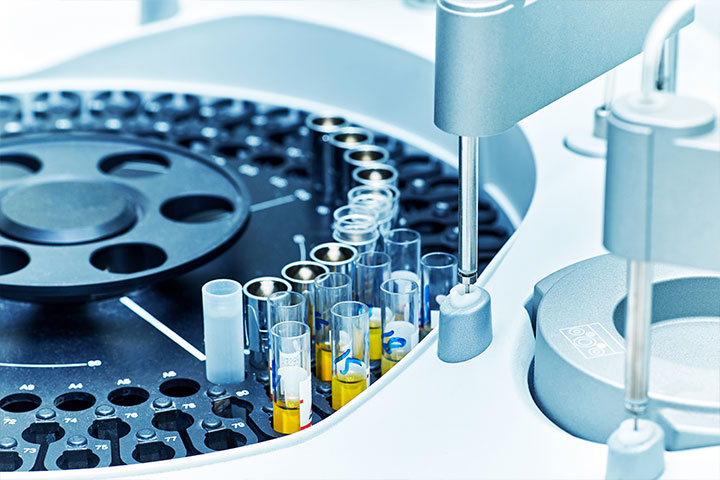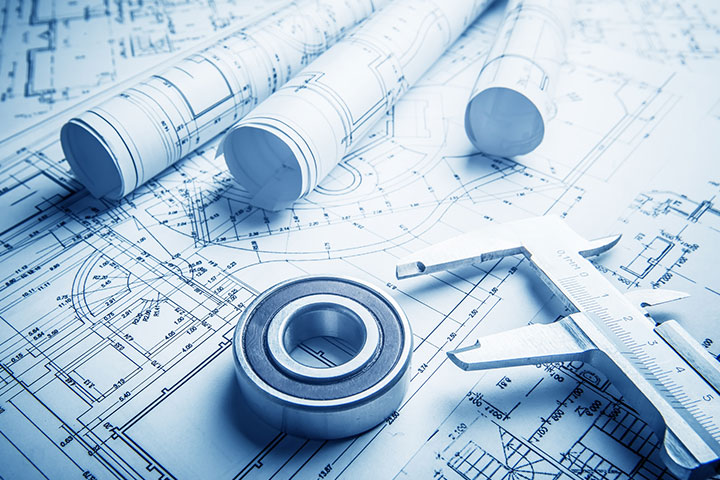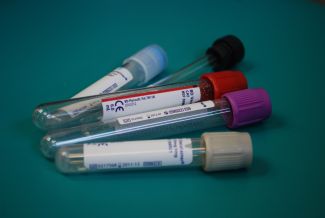
The conformity assessment of auto parts is a compulsory method of selecting, determining the characteristics, evaluating the compliance with the safety requirements of the technical regulation, which is aimed at reducing the number of factors that can lead to a car accident.
Russian and foreign importers who intend to import the car parts into the Russian Federation and the countries of the Eurasian Economic Union must undergo the conformity assessment process. In most cases, it is not possible to import and manufacture auto spare parts without corresponding proof of conformity.
The infringements of the requirements of the technical regulation are generally punishable by sensitive measures.
Legal framework
Since January 1, 2015, the conformity of auto parts has to be confirmed according to the requirements of the Technical Regulation TR CU 018/2011 On safety of wheeled vehicles prior to placing the products on the market of Russia and the Eurasian Economic Union. The regulation distinguishes parts requiring mandatory certification from those eligible for other forms of conformity assessment, such as declarations.
All automotive spare parts are subject to specific technical regulations of the Customs Union, currently the EAEU. To be legally sold in any member state, these products must go through a mandatory safety verification process, resulting in the issuance of a certificate of conformity. Possession of this certificate allows manufacturers and suppliers to legally distribute and sell their products throughout the EAEU without facing safety-related trade restrictions.
The Technical Regulation provides two forms of conformity assessment: 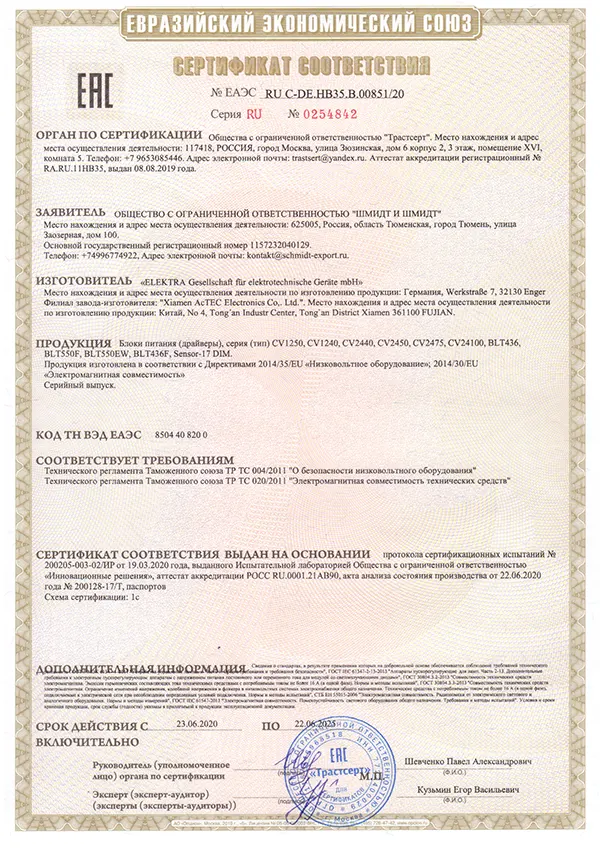
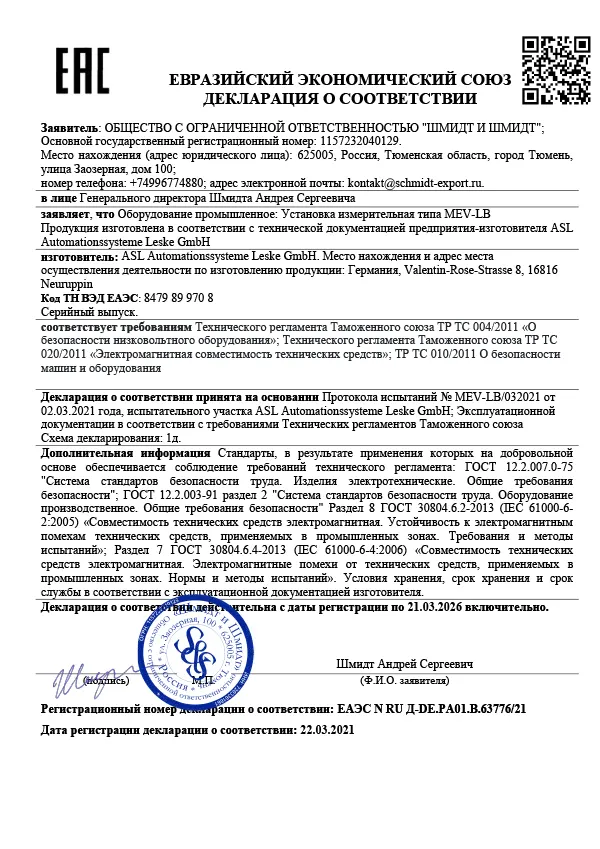
- EAC Certification
- EAC Declaration
This is a more comprehensive process, carried out by accredited third-party certification bodies, and often includes verification of factory production controls to ensure ongoing compliance.
In this procedure, the manufacturer or its authorized representative confirms that the products meet the relevant technical regulations. It generally relies on the manufacturer’s own testing or on supporting evidence provided by suppliers.
The choice of the appropriate conformity assessment method for a particular spare part is determined by the notified body in consultation with the client. Appendix 10 of TR CU 018/2011 provides detailed guidance, specifying which spare parts require certification versus declaration and outlining the relevant assessment schemes.
Both certificates and declarations can be issued either for serial production, individual batches, or single units, depending on the production type and regulatory requirements.
Following safety-related auto parts are usually subject to EAC Certification:
- motors
- auto electric
- auto tires
- steering technology
- injection
- suspension
- silencer
- catalysts
The EAC Declaration is applied for:
- starter battery
- spark plugs etc.
Certification takes place according to various conformity assessment procedures depending on whether it is a serial production or a one-time delivery. The procedures for declaration and certification depend on the type of auto parts and their influence on the safety of the vehicle. Irrespective of the type of conformity assessment, all products are subject to tests in the notified bodies of the EAEU. Depending on the procedure, regular or unscheduled production controls may be carried out at the factory to check the production conditions.
In some cases, the entire product range of the manufacturer can be certified. The prerequisite is that all products have the same first four digits of the tariff number of the EAEU product classification.
The certification and declaration can only be applied for by an importer established in the Eurasian Economic Union. For this reason, an authorized representative within the EAEU is required.
Required documents
- detailed product description
- product name
- customs number
- technical drawings
- technical data sheet
- operation manual
- test reports
- certificates ISO, DIN, CE, CB if at hand
Processing time: 2 to 3 weeks
The conformity assessment is not required for used auto parts. In this case, you will need a negative certificate for the Customs Union which certifies that the imported goods are not part of the products subject to the compulsory declaration of conformity. The manufacturer can also voluntarily certify its products with the GOST certificate. The voluntary GOST certificate is a good way to convince customers of the quality of the products. Auto parts which are not subject to a compulsory EAC marking can still be voluntarily certified according to GOST standards.
The procedure of conformity assessment
The conformity assessment of auto parts according to the technical regulation TR CU 018/2011 can be carried out in the form of a declaration or certification. There are 11 different conformity assessment modules comprising the following steps:
- analysis of technical documentation
- conduction of examinations
- analysis of production
- check of the quality management system
- marking of products with the EAC marking
- control of certified products
After issuing the EAC Certificate, the details of the EAC certificate will be entered in the uniform state register ROSSSTANDART.
The certificate of conformity for serial production according to TR CU 018/2011 is issued for a maximum of four years.
Key product inspection criteria
The exact tests carried out during laboratory inspections depend on the type and purpose of the spare parts being certified. Below are some common examples:
- Engines: Checking emission levels to make sure they meet environmental standards.
- Hydraulic brake systems: Testing output performance, seal tightness under different conditions, housing strength, durability, and vacuum resistance.
- Brake chambers: Measuring the maximum rod force and verifying that all seals are secure and airtight.
- Steering systems: Ensuring compliance with UN Regulation No. 79 (or equivalent EAEU standards), checking that the steering remains functional even if power assistance fails, and confirming there are no cracks or weak points.
- Windscreen wipers: Testing efficiency, resistance to washer fluids and aging, mechanical strength, and reliable operation across different temperatures.
For detailed information about the exact requirements for your specific products, it’s best to consult with experts at accredited certification centers. They have up-to-date knowledge of EAEU technical regulations.
All test results are documented in an official laboratory report, which serves as the main basis for issuing a certificate or declaration of conformity.
Additional requirements for serial production EAC Certification
When applying for an EAC certificate for serially produced spare parts, one extra and very important step is usually required — production control.
An expert from an accredited certification body visits the manufacturing site to review how production is organized. During the audit, the expert checks production conditions, quality control procedures, and overall manufacturing processes to make sure they meet the required technical standards.
Important: To obtain a certificate for serial production with the longest possible validity, manufacturers usually need to prove that their quality management system meets an approved standard, such as ISO 9001. This confirms that the company follows consistent quality practices and maintains reliable production.
Voluntary quality certification
In addition to mandatory certification, manufacturers can also choose to undergo voluntary quality certification. This type of certification helps highlight a product’s strengths and prove its quality based on the specific criteria the manufacturer considers most important.
Voluntary certification can be a powerful marketing tool — it builds customer trust, strengthens brand reputation, and gives your products a competitive advantage in the market.
Entrepreneurial responsibility and legal consequences
Entrepreneurs engaged in the manufacturing, import, or sale of automotive spare parts are legally obligated to ensure that their products hold the required certificate or declaration of conformity. Disregarding this obligation constitutes a violation of EAEU regulations. In cases where uncertified or undeclared parts are sold, businesses may face serious legal and financial consequences, including:
- Significant fines: Financial penalties can reach up to 1 million Russian rubles, depending on the seriousness of the breach.
- Seizure of non-compliant goods: Authorities may confiscate entire batches of spare parts that were offered for sale without proper certification.
- Temporary suspension of operations: Companies may be forced to halt their business activities for up to three months, resulting in operational disruption and economic losses.
Authorized representative
A manufacturer of auto parts that is not established within a Member State of the Eurasian Economic Union (EAEU) is not entitled to apply directly for the conformity assessment of auto parts under TR CU 018/2011 “On the Safety of Wheeled Vehicles.”
To obtain EAC Сertificate or EAC Declaration, a foreign manufacturer must appoint an authorized representative located in one of the EAEU Member States.
This representative acts on behalf of the manufacturer in all matters related to EAC Certification and EAC Declaration, including cooperation with EAEU-accredited certification bodies and testing laboratories, ensuring that the automotive parts meet the applicable safety and quality requirements of the technical regulations.
According to current legislation, only an operator based within the territory of the Eurasian Economic Union may be designated as an authorized representative. For European, American, or Asian producers, this is a mandatory prerequisite for certification and market access to the EAEU.
Schmidt & Schmidt assists producers from Europe, America, and Asia in designating an authorized representative within the EAEU. Through our legally compliant solution via Kazakhstan — an EAEU Member State — we ensure the issuance of EAC Certificates and EAC Declarations. With our local offices, we guarantee that the entire conformity assessment process not only complies with the technical regulations of the Eurasian Economic Union but is also conducted in accordance with European and American sanctions regulations. In this way, our clients gain reliable and lawful access to the EAEU market.
Compliance with EU and US sanctions in the context of auto parts
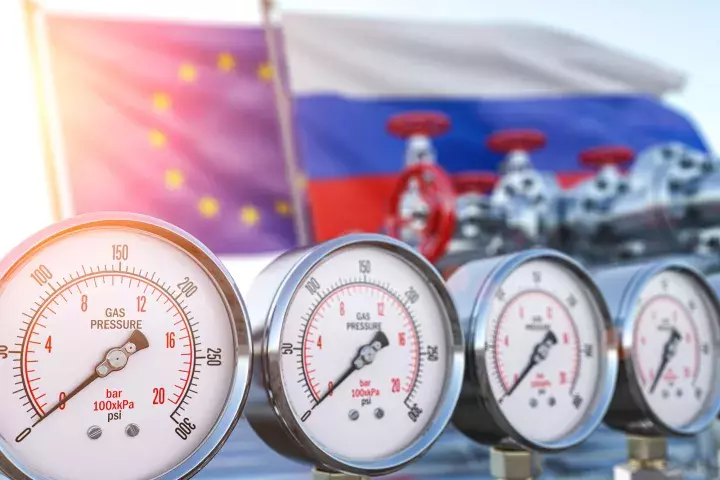
When certifying and declaring the conformity of automotive spare parts for the Eurasian Economic Union (EAEU) market, European and international manufacturers must not only meet the technical regulations of the EAEU but also strictly comply with EU and US sanctions. These sanctions may affect the export of certain vehicle components, trade with listed individuals or entities, and the provision of engineering or certification services. Failure to observe these requirements can result in disrupted business operations and potential civil or criminal liability.
The issue is particularly sensitive for exports to Russia and Belarus. Since 2014, numerous embargoes and restrictive measures have been introduced, directly influencing the EAC conformity assessment of automotive parts. For example, certain certification bodies, testing laboratories, or distributors in these countries may appear on sanctions lists, rendering any cooperation legally prohibited. Therefore, companies must ensure that not only their products but also all partners and intermediaries involved in the certification and logistics process are fully compliant with the latest EU and US regulations.
A significant risk also arises if shipments of automotive components are detained or blocked due to sanctions violations. Even a valid EAC certificate or declaration cannot guarantee legal protection in such cases. This makes close coordination between compliance departments, export control officers, and certification partners essential to avoid legal complications and maintain secure supply chains.
For manufacturers and exporters of auto spare parts seeking to access Kazakhstan, Russia, or other EAEU Member States, it is crucial to ensure both technical conformity and comprehensive sanctions compliance. This includes verifying the end-use and end-users of the products, as well as choosing reliable authorized representatives and local partners who meet all compliance requirements.
Schmidt & Schmidt provides a legally compliant solution via Kazakhstan. As a full EAEU Member State, Kazakhstan is authorized to issue both EAC certificates and EAC declarations. Through our local offices, we conduct conformity assessment procedures in strict alignment with EU and US sanctions regulations, helping our clients legally access the EAEU market while maintaining international compliance standards.
For detailed updates and guidance, please refer to our article: EAC Certification Amid EU and US Sanctions against Russia and Belarus.
Labelling requirement
Every vehicle or component which conformity with the requirements of the technical regulations TR CU 018/2011 On safety of wheeled vehicle has been confirmed and for which type-approval has been granted, an international approval mark shall be provided with ECE approval marking. The marking consists of a circle bearing the letter "E", the country code and the vehicle type-approval number.
The ECE marking is equivalent to the EAC one. This makes the marking of components with the EAC marking unnecessary.

Terms and costs of conformity assessment for the auto parts
The application for a conformity assessment for auto parts is a complex process, the costs of which are dependent on numerous factors.
Delivery of the documentation
If you order the EAC Certificate on Auto Parts, you will receive a copy of it via email immediately after our successful certification procedure. The original document and two certified copies will be sent by post.





